- Home
- Helen Dunmore
The Land Lubbers Lying Down Below (Penguin Specials)
The Land Lubbers Lying Down Below (Penguin Specials) Read online
Penguin Specials
‘We believed in the existence in this country of a vast reading public for intelligent books at a low price, and staked everything on it.’
Sir Allen Lane, founder of Penguin Books
The first affordable quality books for a mass audience were brought out by Penguin nearly eighty years ago. And while much has changed since then, the way we read books is only now becoming different. Sometimes it is still only a hardback or paperback book that will do. But at other times we prefer to read on something either more portable – a dedicated reading device or our smart mobile phone – or more connected, such as a tablet or a computer.
Where we are or how much time we have often decides what it is we will read next.
Penguin Specials are designed to fill a gap. They are short, they are original and affordable, and they are written by some of today’s best and most exciting writers. And they are available only in digital form.
Written to be read over a long commute or a short journey, in your lunch hour or between dinner and bedtime, these brief books provide a short escape into a fictional world or act as a primer in a particular field or provide a new angle on an old subject.
Always informative and entertaining, Penguin Specials offer excellent writing that you can read on the move or in a spare moment for less than the price of a cup of coffee.
ABOUT THE AUTHOR
Helen Dunmore has published eleven novels with Penguin: Zennor in Darkness, which won the McKitterick Prize; Burning Bright; A Spell in Winter, which won the Orange Prize; Talking to the Dead; Your Blue-Eyed Boy; With Your Crooked Heart; The Siege, which was shortlisted for the 2001 Whitbread Novel of the Year Award and for the Orange Prize for Fiction 2002; Mourning Ruby; House of Orphans; Counting the Stars; and The Betrayal, which was longlisted for the Man Booker Prize 2010. She is also a poet, children’s novelist and short-story writer.
The Land Lubbers Lying Down Below
I always take my lady her morning chocolate on a round silver tray. When I was little, my lady used to let me sip it from her silver spoon. I remember the rich, dark taste. I remember curling in the warm cloud of her bedclothes, and the way she would caress me.
She doesn’t look up from her letters when I place the tray on the bedside table.
‘Your chocolate, my lady.’
‘Can’t you see I am busy, Scipio?’ I bow, and step backwards, but my foot catches the table leg and the tray begins to slide. I lunge for it, but the table topples, the tray turns over and dark chocolate spews over my lady’s rose-coloured rug. I crouch down, fumbling for the pot and broken cup. I scrub at the stain with the tray-cloth, but it only spreads farther.
‘Leave it,’ says my lady. Her words fall like splinters of glass. She rings the bell for Eliza.
‘I am sorry . . .’ I stammer, ‘my foot –’
‘Stand up.’
I stand up.
‘You have soiled your uniform,’ she says, pointing at the splashes on my silk livery. ‘No matter. It is too tight for you. You are growing into a hobbledehoy, Scipio.’
Her eyes look me up and down critically. ‘Go and put on the midnight-blue satin, and your crimson turban,’ she orders me. ‘Wear your crimson sash.’
My lady knows all my uniforms. When I was little, we used to lie in her bed choosing embroidered satins and silks. I played with purple, midnight blue, crimson and gold. She bought perfumed lotions for my skin and oils for my hair. I was five years old, she said. The ship’s Captain who brought me here to London from across the sea told her my age, and that I was the son of a chief in my own country. My lady paid a fine price for me, and I have been her page for six years now.
I remember the Captain. I remember sleeping in a little wooden room that went up and down, and how sharp the sea smelled. Sometimes the water would slop over the portholes and I would hold tight to the edges of my bunk in case I was swept away. When a grey tongue of land crept close, they said, ‘That’s England.’
‘Remember, Scipio,’ my lady says sternly, ‘I cannot be attended by a hobbledehoy tonight.’
Tonight it is the concert. Two Prodigies of Nature are coming to play in my lady’s ballroom. James the footman told me what this means. They are children, younger than me, and such fine musicians that the whole world comes to stare and listen. I play the harpsichord, and I sing. I speak French and German, and I also sing in Italian. My lady engaged a French dancing-master, and I learned to dance the gavotte, the sarabande, the minuet and many other dances. My lady’s friends used to give me coins when I played and sang to them. It happens rarely now, because what is remarkable in a child of six is nothing special in a great boy of eleven. I have saved all the coins. They are hidden in a purse inside my mattress.
The footmen have carried the harpsichord into the centre of the ballroom. There are rows of gilt chairs, in two half-circles. My lady has not rung for me to come to her chamber, and so James says that before I get changed into my evening uniform I should make myself useful in the ballroom. I lift the gilt chairs easily.
‘You’re getting to be a fine lad, Scipio,’ says James. ‘You’ll make a footman one of these days, if you play your cards right.’
‘When are the performing monkeys arriving?’ Albert asks James.
‘Watch your lip,’ says James. ‘Don’t you know what a fine price my lady has paid for this concert?’
I have trouble fixing my turban. I look for Eliza to help me but she and Sarah are busy handing combs and pins to my lady’s hairdresser.
‘You should know how to do it by now,’ Eliza mutters. I see my lady’s face in the mirror but she does not look at me.
When I am ready I go back to the ballroom. The candles are lit and there is a man in dark clothes leaning over the harpsichord. A boy sits at the keyboard. He is very small, wigged and powdered like a full-grown man, and he is laughing.
‘Let me play, Wolfi,’ says the girl. He jumps off the stool and a girl with her hair dressed high in foreign fashion takes his place. She is very solemn, and the boy pulls a face at her, trying to make her laugh. She plays for a few bars, then he darts round to the keyboard and starts decorating the music with cascades of notes.
Their father says, ‘That’s enough practice. Come with me,’ and he leads them out of the ballroom, towards the antechamber. He puts an arm round each of their shoulders. They are a family, the three of them together.
My lady receives her guests at the head of the stairs. I thought she would want me to stand beside her as usual, but she says, ‘Go and serve the musicians, Scipio.’
I take them a plate of macaroons, some cordial and some sweet wine. The boy, Wolfi, takes a handful of macaroons and crams them in as fast as he can.
‘Wolfi, you’ll be sick like you were at Spring Gardens,’ says the girl.
‘Nannerl, why are you always so good?’
‘She was born good,’ says their father. ‘Unlike you, my boy.’ But he says it like a joke.
‘Do you have everything you need?’ I ask them in German, and they all stare at me in surprise.
‘More macaroons, maybe?’ asks the boy, and I look down and see the plate is nearly empty.
‘Wolfi, we are here to play, not to eat all night,’ says his sister.
‘I will get some more from the kitchen later,’ I say, and I smile at Wolfi. I like him. He will have to work hard to please my lady. He deserves macaroons. ‘You have ten minutes,’ I tell them. ‘The guests are seating themselves.’
‘Good,’ says the father.
Wolfi snatches a sip from his father’s wine glass when he’s not looking. Nannerl sees, but
she doesn’t give him away.
As soon as the concert begins I understand why the whole world comes to stare and listen. Wolfi can do anything. His fingers leap on the keys and he laughs sometimes, silently, to himself. He plays whatever they give him and he improvises until the music is like a fountain rising higher and higher and showering drops of notes over us all. He plays as if music lives inside him. Nannerl plays too but although her playing is very good, it is not a miracle, like Wolfi’s. I wonder if she minds.
They finish. There is applause, then silence. Suddenly my lady claps her hands and says, ‘Scipio! Come here. Young Master Mozart shall play for you, and you shall sing.’
She has often heard me sing. She has listened to him play, and must know there can be no match between us. But I have to obey her. Wolfi turns to me as I walk forward. Nannerl starts playing again, and under cover of her music Wolfi asks, ‘Have you a song?’
My mind empties, and only one song is left. It comes from the ship that brought me to England. The Captain stood me on a stool and taught me to sing it, line by line. Afterwards he clapped with his big hands and picked me up and swung me round and round. I did not understand then that he was going to sell me when we got to London.
‘Yes, I have a song,’ I say. Wolfi’s eyes sparkle. He nods towards the antechamber, and we slip out while Nannerl plays steadily.
Wolfi sips his father’s wine, then says, ‘Sing it to me.’
I sing it through, very softly so they won’t hear from the ballroom. Wolfi nods, and says, ‘I have it.’ He picks up his violin, and plays a few bars perfectly. ‘I like it,’ he says.
When we stand in front of the audience I’m so nervous that my lady’s guests are a blur of silk and satin and sparkling jewels. I cannot fix on their faces, although I know they are chattering and laughing to each other. My tight uniform squeezes my breathing as Wolfi skips through the opening bars. I close my eyes so I won’t see the room, and start to sing:
’Twas Friday morn when we set sail,
And we were not far from land,
When the Captain, he spied a fair mermaid,
With a comb and a glass in her hand.
Oh the ocean waves may roll,
And the stormy winds may blow,
While we poor sailor boys go skipping up aloft
And the land lubbers lying down below, below, below
And the land lubbers lying down below . . .
There is dead silence, but I keep going. I daren’t open my eyes.
Then up spoke the Cook of our gallant ship,
And a greasy old Cook was he;
‘I care more for my kettles and my pots,
Than I do for the roaring of the sea . . .’
My voice is wobbling. They don’t like it. I open my eyes. Some ladies are making faces as they fan themselves. My lady stares straight ahead, hard and angry. My throat is dry and the notes stick while my song falls away in pieces. Only Wolfi doesn’t care. He plays on, wave after wave of music, right to the end of the song, and then he beats out a final drumbeat of notes. My lady rises from her seat and beckons me with one gloved finger.
‘A song more fit for the gutter than for my guests, Scipio. You had better go and assist in the supper-room. Ask James for your duties.’
Since that concert I have never entered my lady’s bedchamber. Once I said to Eliza, ‘Does she ever ask for me?’ but Eliza shook her head. I clean knives and polish silver. I sleep in a cubbyhole below stairs, with my purse deep in the straw of my pillow. James still says I could make a fine footman one day, but I don’t listen. He wants to make a pet of me, and he says what he thinks will please me.
‘You’ve a footman’s calves,’ he says, and I feel his hand on my leg, prodding my muscle. He wants me between his thighs, but I’ve learned my lesson. I keep my head down and polish knives until the skin on my fingers is raw.
One hot day in July, Albert brings in a bill advertising a concert at the Swan and Harp in Cornhill.
‘It’s those blessed Prodigies of Nature again,’ he says, sarcastic. ‘Half a crown entry, they want.’
An itch to go there seizes me. There won’t be any fine ladies in a tavern in Cornhill. I can go as well as anybody. But half a crown is a huge sum. I wonder why Wolfi and his sister are playing in a tavern now, instead of great ladies’ ballrooms. Perhaps they have grown too tall. Perhaps the ladies are tired of them.
When the day comes, I go to my hiding place and weigh my purse in my hands. I run and beg Sarah for a little sweet almond oil. I rub it into my skin until the ashy grey has gone and then I rub it into my hair. I ask James if I can have a clean shirt. Does he really believe that I can become a footman one day?
‘Yes,’ says James, pleased, and he finds me a cambric shirt and a pair of clean breeches. I dress myself and hang my purse around my neck. It is the easiest thing in the world to slip out of the area door, up the steps and away down the street. I walk fast, but not too fast. If anyone sees me they’ll think I’ve been sent on an errand.
There is a thick crowd milling outside the Swan and Harp. I wriggle my way through, towards the front. These people would never be allowed near my lady’s doors, laughing and shouting and all with ready money in their hands. They push me in on their tide. The man on the door doesn’t even look at me, he just counts the coins I give him. Inside the tavern the air is thick with smoke and laughter, and pot-boys weave in and out, carrying jugs. In the centre a space has been cleared and a harpsichord stands ready. I find a seat at the side, in the shadows, and pay twopence for a glass of ginger shrub. My heart beats fast with excitement. Nobody here knows that I used to be my lady’s page. No one is going to shout at me, ‘What are you doing here, you lazy good-for-nothing? Get back to the scullery, there’s a box of knives to clean.’
It is Wolfi who plays first. He has changed so much. He is taller, and he’s so thin that I think that he must have been ill. He isn’t wearing a fancy miniature man’s suit, but a handsome shirt and breeches. His hair is tied behind. He is still a boy but he doesn’t look like a Prodigy of Nature any more. Nannerl is there too, and it is announced that Wolfi will play first.
Wolfi bows to the audience and they fall silent. My lady’s guests were never silent; their chatter went on all the while, sharp as bits of glass. Wolfi plays better than ever. His father says he will play works of his own composition, and he plays a minuet and then a contredanse and some jigs that remind me of Biddy singing in the kitchen. People call out the names of their favourite songs and if he knows it he plays it straight off, but if he doesn’t he’ll ask them to sing a verse through, and then he has it. His father announces that he will play blindfold. The audience cheers as one of them is asked to come up and check that it is a true blindfold and now Wolfi is playing again, faster and faster, as if he has been wound up so tight that he will never be able to stop. They take the blindfold off and he stands and bows and the crowd stands up and shouts and whistles. Wolfi looks very tired. I forget about sitting back in the shadow. I am on my feet clapping, and that’s when Wolfi sees me. His face lights up and he gives me a little wave. When the cheering has died down he calls out: ‘Scipio!’
I think of running away, but he looks so tired. He’s beckoning me eagerly. Nannerl gives me a small, shy smile. Their father is peering in my direction, but he doesn’t know me.
‘Scipio!’ calls Wolfi again, and I go forward.
Wolfi beams and seizes my hand. ‘My friend will sing, and I will play,’ he announces. The crowd claps and cheers and waves mugs. Wolfi picks up his violin and plays the first bars of my song. He remembers them perfectly. I clench my fists. The memory of my lady’s concert sweeps through me. I can’t do it. I can’t fail again. Wolfi stops, glances at me. He smiles but I can see he’s worried.
Suddenly I make up my mind. This is not my lady’s concert. Wolfi likes my song, and he knows more than my lady. I stand as tall as I can, and look straight at the audience. Their faces are warm with the music they have heard a
nd the drinks they have drunk. Wolfi draws his bow across the strings. We are off. By the third verse the tavern crowd is singing along with the chorus and clapping out the rhythm. An old man bawls ‘Way-O, Way-O!’ as sailors do when they pull the ropes. The noise roars in my ears like the sea as we hit the last verse:
Then three times ’round went our gallant ship,
And three times ’round went she,
And the third time that she went around
She sank to the bottom of the sea.
They shout and drum their mugs on the tables for more as we bow, and I see that Wolfi is laughing as he laughed the first time I saw him, not silently this time but aloud, as if this is what all the miracle of his music is meant for. But at the same time I am afraid of the faces. They are so hungry. If they don’t get what they want, they will turn. I think of the Captain. He taught me each line patiently. He set me on a stool as he hunkered by me, and his face was inches from mine. I don’t think he hurt me. I don’t remember. He would not have wanted to spoil me. He sold me to my lady for a handsome sum.
I don’t wait for the end of the concert. You can stay too long, and then people don’t want you any more. Once Nannerl starts playing, I smile at Wolfi, and give him a wave as I slip away. I check that my purse is still safe around my neck. There’s enough money in it for food and a bed until I get work. I’m not going to be a footman. I’m heading for the docks.
The sea was grey in the portholes, I remember that. It churned around the ship and slopped all over the glass. I held tight to the sides of my bunk, for fear I’d be thrown out. I thought the sea would come in and fill the cabin. But I think there was a time when the sea was lazy, and a different colour. Blue, maybe.
PENGUIN BOOKS
Published by the Penguin Group
Penguin Books Ltd, 80 Strand, London WC2R 0RL, England
Penguin Group (USA) Inc., 375 Hudson Street, New York, New York 10014, USA

 The Ingo Chronicles: Stormswept
The Ingo Chronicles: Stormswept The Deep
The Deep The Crossing of Ingo
The Crossing of Ingo Birdcage Walk
Birdcage Walk Glad of These Times
Glad of These Times Counting the Stars
Counting the Stars With Your Crooked Heart
With Your Crooked Heart Burning Bright
Burning Bright House of Orphans
House of Orphans Mourning Ruby
Mourning Ruby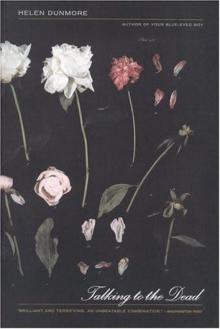 Talking to the Dead
Talking to the Dead Exposure
Exposure Ingo
Ingo The Malarkey
The Malarkey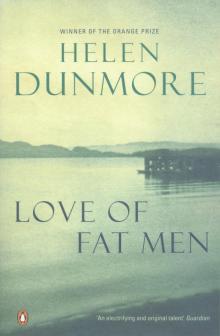 Love of Fat Men
Love of Fat Men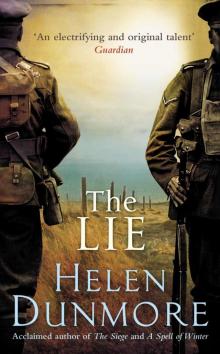 The Lie
The Lie The Siege
The Siege Inside the Wave
Inside the Wave Counting Backwards
Counting Backwards The Land Lubbers Lying Down Below (Penguin Specials)
The Land Lubbers Lying Down Below (Penguin Specials)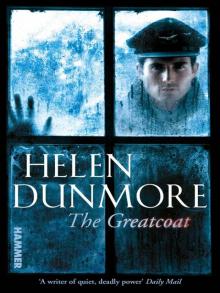 The Greatcoat
The Greatcoat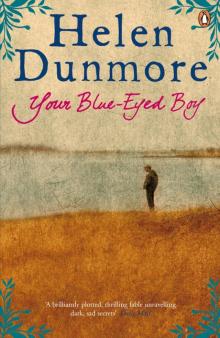 Your Blue Eyed Boy
Your Blue Eyed Boy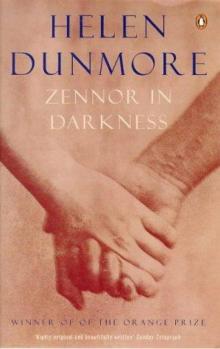 Zennor in Darkness
Zennor in Darkness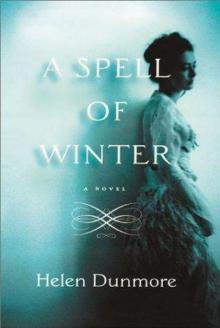 Spell of Winter
Spell of Winter Out of the Blue: Poems 1975-2001
Out of the Blue: Poems 1975-2001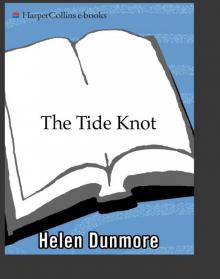 Tide Knot
Tide Knot The Betrayal
The Betrayal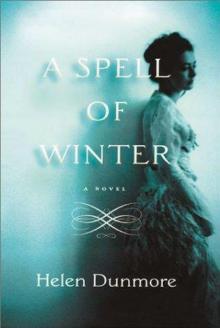 A Spell of Winter
A Spell of Winter Out of the Blue
Out of the Blue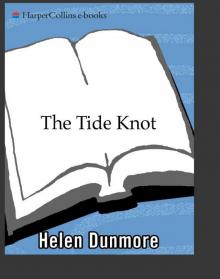 The Tide Knot
The Tide Knot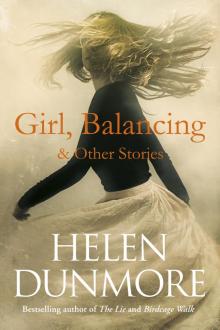 Girl, Balancing & Other Stories
Girl, Balancing & Other Stories Betrayal
Betrayal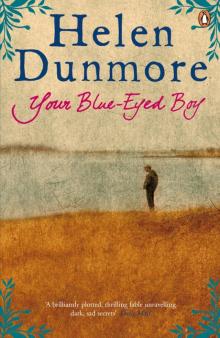 Your Blue-Eyed Boy
Your Blue-Eyed Boy